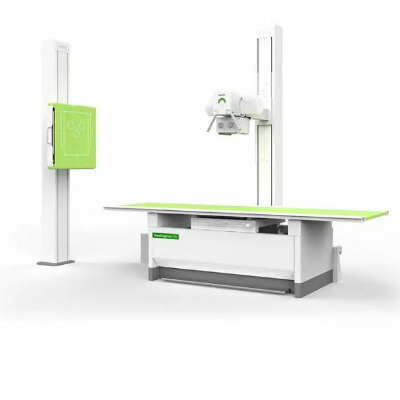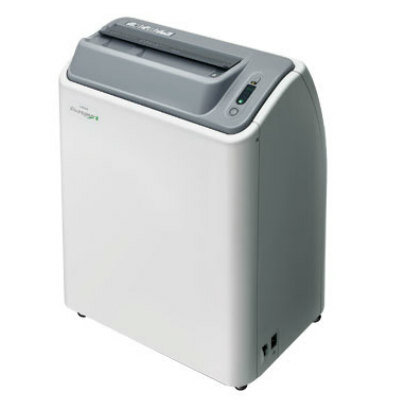Scalable CT Platform Minimizes Technology Obsolescence
|
By MedImaging International staff writers Posted on 20 Jan 2022 |

Image: The Revolution Apex platform (Photo courtesy of GE Healthcare)
A new computerized tomography (CT) platform helps healthcare facilities keep up with technological advances while optimizing clinical capabilities and standardizing future workflows.
The GE Healthcare (Chicago, IL, USA) Revolution Apex platform offers built-in modular scalability for seamless CT detector upgrade, without needing to replace the gantry. The cornerstone of the platform is the Gemstone Clarity Detector, which enables users to update their service line from a 40 mm detector/0.28 second rotation speed, up to a large 160 mm/0.23 second per rotation speed. Regular software upgrades offer image tools, dose management, cybersecurity, service tools, and workflow enhancements, without needing a new user interface.
The Revolution Apex platform also offers Effortless Workflow, which utilizes artificial Intelligence (AI) technologies to streamline the entire CT process by automatically positioning patients with 94% auto centering, with an accuracy of +/- 2 cm; suggesting scan protocols with 90% accuracy; automating and expediting workflows with a 66% reduction in clicks; saving 56% of the time for scan settings and 21% for the entire exam; reducing up to 91% of image noise at the same dose; and improving spatial resolution by up to twice at the same image quality.
The Revolution Apex platform is equipped with GE Healthcare’s patented Quantix X-ray tube, which provides the output required to image all anatomies, regardless of patient size, without compromise on image quality. A key application of the technology is next-generation Gemstone Spectral Imaging, which reduces image noise in low energy monochromatic images to detect and assess small lesions. Revolution Apex also uses TrueFidelity deep learning image reconstruction, which uses a dedicated deep neural network to generate high-definition, low-noise CT images.
“Understanding that healthcare systems are challenged to keep up to date with the latest cutting-edge CT technologies, we developed a new modular solution that can grow with healthcare systems – so they have what they need, when they need it,” said Jean-Luc Procaccini, president and CEO of molecular imaging and CT at GE Healthcare. “Given the volatility of today’s healthcare environment, it makes sense to have a system that is scalable to meet today and tomorrow’s evolving CT needs.”
Twenty years ago, new CT technologies were introduced every four-to-five years; but today, new solutions are introduced annually, resulting in rapid obsolescence. This is largely due to the pace of innovation, which has greatly accelerated due to the speed and growth of modern engineering, AI, and cloud computing.
Related Links:
GE Healthcare
The GE Healthcare (Chicago, IL, USA) Revolution Apex platform offers built-in modular scalability for seamless CT detector upgrade, without needing to replace the gantry. The cornerstone of the platform is the Gemstone Clarity Detector, which enables users to update their service line from a 40 mm detector/0.28 second rotation speed, up to a large 160 mm/0.23 second per rotation speed. Regular software upgrades offer image tools, dose management, cybersecurity, service tools, and workflow enhancements, without needing a new user interface.
The Revolution Apex platform also offers Effortless Workflow, which utilizes artificial Intelligence (AI) technologies to streamline the entire CT process by automatically positioning patients with 94% auto centering, with an accuracy of +/- 2 cm; suggesting scan protocols with 90% accuracy; automating and expediting workflows with a 66% reduction in clicks; saving 56% of the time for scan settings and 21% for the entire exam; reducing up to 91% of image noise at the same dose; and improving spatial resolution by up to twice at the same image quality.
The Revolution Apex platform is equipped with GE Healthcare’s patented Quantix X-ray tube, which provides the output required to image all anatomies, regardless of patient size, without compromise on image quality. A key application of the technology is next-generation Gemstone Spectral Imaging, which reduces image noise in low energy monochromatic images to detect and assess small lesions. Revolution Apex also uses TrueFidelity deep learning image reconstruction, which uses a dedicated deep neural network to generate high-definition, low-noise CT images.
“Understanding that healthcare systems are challenged to keep up to date with the latest cutting-edge CT technologies, we developed a new modular solution that can grow with healthcare systems – so they have what they need, when they need it,” said Jean-Luc Procaccini, president and CEO of molecular imaging and CT at GE Healthcare. “Given the volatility of today’s healthcare environment, it makes sense to have a system that is scalable to meet today and tomorrow’s evolving CT needs.”
Twenty years ago, new CT technologies were introduced every four-to-five years; but today, new solutions are introduced annually, resulting in rapid obsolescence. This is largely due to the pace of innovation, which has greatly accelerated due to the speed and growth of modern engineering, AI, and cloud computing.
Related Links:
GE Healthcare
Latest Radiography News
- Novel Breast Imaging System Proves As Effective As Mammography
- AI Assistance Improves Breast-Cancer Screening by Reducing False Positives
- AI Could Boost Clinical Adoption of Chest DDR
- 3D Mammography Almost Halves Breast Cancer Incidence between Two Screening Tests
- AI Model Predicts 5-Year Breast Cancer Risk from Mammograms
- Deep Learning Framework Detects Fractures in X-Ray Images With 99% Accuracy
- Direct AI-Based Medical X-Ray Imaging System a Paradigm-Shift from Conventional DR and CT
- Chest X-Ray AI Solution Automatically Identifies, Categorizes and Highlights Suspicious Areas
- AI Diagnoses Wrist Fractures As Well As Radiologists
- Annual Mammography Beginning At 40 Cuts Breast Cancer Mortality By 42%
- 3D Human GPS Powered By Light Paves Way for Radiation-Free Minimally-Invasive Surgery
- Novel AI Technology to Revolutionize Cancer Detection in Dense Breasts
- AI Solution Provides Radiologists with 'Second Pair' Of Eyes to Detect Breast Cancers
- AI Helps General Radiologists Achieve Specialist-Level Performance in Interpreting Mammograms
- Novel Imaging Technique Could Transform Breast Cancer Detection
- Computer Program Combines AI and Heat-Imaging Technology for Early Breast Cancer Detection
Channels
MRI
view channel
PET/MRI Improves Diagnostic Accuracy for Prostate Cancer Patients
The Prostate Imaging Reporting and Data System (PI-RADS) is a five-point scale to assess potential prostate cancer in MR images. PI-RADS category 3 which offers an unclear suggestion of clinically significant... Read more
Next Generation MR-Guided Focused Ultrasound Ushers In Future of Incisionless Neurosurgery
Essential tremor, often called familial, idiopathic, or benign tremor, leads to uncontrollable shaking that significantly affects a person’s life. When traditional medications do not alleviate symptoms,... Read more
Two-Part MRI Scan Detects Prostate Cancer More Quickly without Compromising Diagnostic Quality
Prostate cancer ranks as the most prevalent cancer among men. Over the last decade, the introduction of MRI scans has significantly transformed the diagnosis process, marking the most substantial advancement... Read moreUltrasound
view channel
Deep Learning Advances Super-Resolution Ultrasound Imaging
Ultrasound localization microscopy (ULM) is an advanced imaging technique that offers high-resolution visualization of microvascular structures. It employs microbubbles, FDA-approved contrast agents, injected... Read more
Novel Ultrasound-Launched Targeted Nanoparticle Eliminates Biofilm and Bacterial Infection
Biofilms, formed by bacteria aggregating into dense communities for protection against harsh environmental conditions, are a significant contributor to various infectious diseases. Biofilms frequently... Read moreNuclear Medicine
view channel
New SPECT/CT Technique Could Change Imaging Practices and Increase Patient Access
The development of lead-212 (212Pb)-PSMA–based targeted alpha therapy (TAT) is garnering significant interest in treating patients with metastatic castration-resistant prostate cancer. The imaging of 212Pb,... Read moreNew Radiotheranostic System Detects and Treats Ovarian Cancer Noninvasively
Ovarian cancer is the most lethal gynecological cancer, with less than a 30% five-year survival rate for those diagnosed in late stages. Despite surgery and platinum-based chemotherapy being the standard... Read more
AI System Automatically and Reliably Detects Cardiac Amyloidosis Using Scintigraphy Imaging
Cardiac amyloidosis, a condition characterized by the buildup of abnormal protein deposits (amyloids) in the heart muscle, severely affects heart function and can lead to heart failure or death without... Read moreGeneral/Advanced Imaging
view channel
New AI Method Captures Uncertainty in Medical Images
In the field of biomedicine, segmentation is the process of annotating pixels from an important structure in medical images, such as organs or cells. Artificial Intelligence (AI) models are utilized to... Read more.jpg)
CT Coronary Angiography Reduces Need for Invasive Tests to Diagnose Coronary Artery Disease
Coronary artery disease (CAD), one of the leading causes of death worldwide, involves the narrowing of coronary arteries due to atherosclerosis, resulting in insufficient blood flow to the heart muscle.... Read more
Novel Blood Test Could Reduce Need for PET Imaging of Patients with Alzheimer’s
Alzheimer's disease (AD), a condition marked by cognitive decline and the presence of beta-amyloid (Aβ) plaques and neurofibrillary tangles in the brain, poses diagnostic challenges. Amyloid positron emission... Read more.jpg)
CT-Based Deep Learning Algorithm Accurately Differentiates Benign From Malignant Vertebral Fractures
The rise in the aging population is expected to result in a corresponding increase in the prevalence of vertebral fractures which can cause back pain or neurologic compromise, leading to impaired function... Read moreImaging IT
view channel
New Google Cloud Medical Imaging Suite Makes Imaging Healthcare Data More Accessible
Medical imaging is a critical tool used to diagnose patients, and there are billions of medical images scanned globally each year. Imaging data accounts for about 90% of all healthcare data1 and, until... Read more
Global AI in Medical Diagnostics Market to Be Driven by Demand for Image Recognition in Radiology
The global artificial intelligence (AI) in medical diagnostics market is expanding with early disease detection being one of its key applications and image recognition becoming a compelling consumer proposition... Read moreIndustry News
view channel
Bayer and Google Partner on New AI Product for Radiologists
Medical imaging data comprises around 90% of all healthcare data, and it is a highly complex and rich clinical data modality and serves as a vital tool for diagnosing patients. Each year, billions of medical... Read more


















